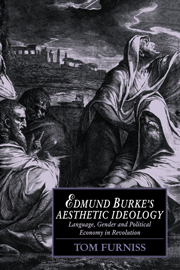In Burke's Enquiry, the causes of the sublime may be various – vastness, solitude, silence, obscurity, power – but its characteristic effect (in its highest degree) is an astonishment which pre-emptively disables reason:
The passion caused by the great and sublime in nature, when those causes operate most powerfully, is Astonishment; and astonishment is that state of the soul, in which all its motions are suspended, with some degree of horror. In this case the mind is so entirely filled with its object, that it cannot entertain any other, nor by consequence reason upon that object which employs it. Hence arises the great power of the sublime, that far from being produced by them, it anticipates our reasonings, and hurries us on by an irresistible force. Astonishment, as I have said, is the effect of the sublime in its highest degree; the inferior effects are admiration, reverence, and respect. [Enquiry, p. 57)
The sublime ‘anticipates’ our reasonings – at once prefiguring and pre-empting, looking forward to and forestalling, reason's powers and insights. This implicit, though perhaps ambivalent, attack on reason reinforces our sense that the Burkean sublime is constituted in resistance to the Enlightenment. But in suspending reason, it seems that the sublime might have contradictory social effects: if, in its highest degree, the sublime induces an astonishment which ‘hurries us on by an irresistible force’, then it might unleash potentially disruptive, unpredictable energies; on the other hand, its inferior effects, such as admiration, reverence, and respect, apparently promise and promote social stability.
